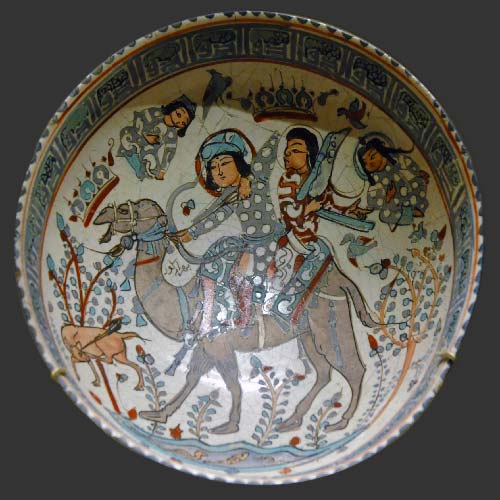
The word was coined by Horace Walpole, an 18th Century English man of letters, describe happy accidental discoveries by people who are smart enough to pick up on the usefulness of a given unintended outcome. He coined the word from the name "Serendippo" (which he translated as "Serendip"), meaning Sri Lanka (or Ceylon) which in one Persian folk tale was ruled by a king who exiled his three sons to test how wise and worthy they would be in ruling Serendippo, the land of lions, after he retired.


As the sons travel the world, they stumble across certain clues to a lost camel which, like Sherlock Holmes, they are able to deduce the characteristic of (sight unseen) by piecing together several small clues. For instance the camel was part blind, part toothless, and limped as it carried a pregnant woman and was transporting two baskets--one filled with honey and one with butter. By explaining their deductive work (actually inductive reasoning) they were able to prove their innocence before the Persian Emperor against the accusation of having stolen the camel.
The princes continue on their adventures, wisely seizing upon little clues to learn new things and advance their fortunes in the world. These young Serendipian lords time and again display their skills of
serendipity, modeling wisdom and advancing human learning along the way. They were wise wanderers, freely seeking knowledge as they bumbled far from their home and being rewarded for their noble capacity to keep an open mind when they encountered new things.
We could all do with a little serendipity in our lives, but the first trick is not letting false certainties wall off our brains from new possibilities.